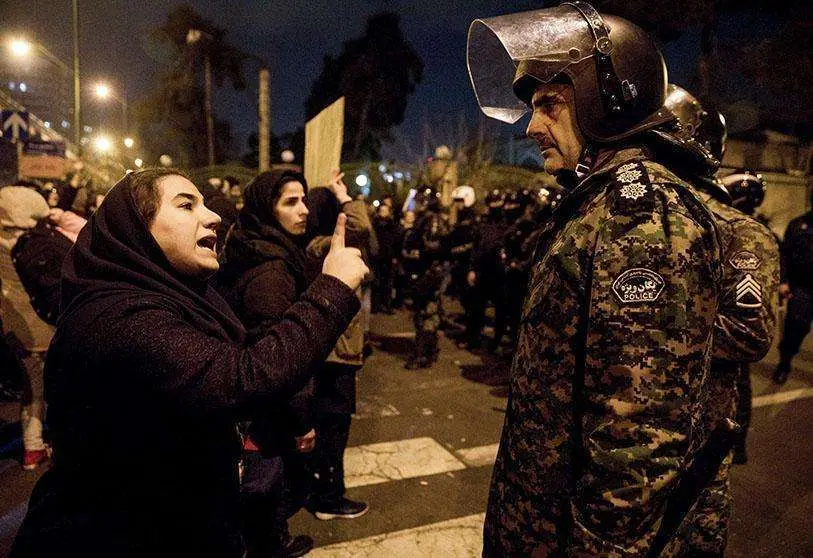Iran: at least 76 killed during protests over Mahsa Amini's death

At least 76 people have been killed in Iran by security forces in protests that began ten days ago, according to the Oslo-based NGO Iran Human Rights.
Tehran has so far admitted 41 deaths and 1,186 detainees in the unrest unleashed after the arrest on the 13th and subsequent death at a police station of 22-year-old Mahsa Amini, allegedly for wearing the wrong headscarf, which is compulsory in public places in Iran for women who have passed puberty.
According to information obtained by the NGO, six women and four children are among the dead and most of the families have been "forced" to bury their dead at night, "pressured" not to hold public funerals and "threatened with charges" if they spread the news.
"Videos and death certificates obtained by Iran Human Rights confirm that live ammunition is being fired directly at protesters," a statement said.
The Norwegian-Iranian NGO also denounced the use of torture and ill-treatment against detainees to force "false televised confessions" and calls for "urgent joint action by the international community".
?? | LO ÚLTIMO: Así agredió la policia del régimen iraní a una valiente mujer que se quitó el velo y con las manos arriba se acercó a las efectivos policiales quienes la atacaron brutalmente. #MahsaAmini pic.twitter.com/r7hXlSd494
— Alerta Mundial (@AIertaMundiaI) September 26, 2022
"The world must stand up for the demands of the Iranian people for their fundamental rights," said the organisation's director, Mahmood Amiry-Moghaddam.
Iranian President Ebrahim Raisi said five days ago during his visit to New York to address the UN General Assembly that expressions of discontent were "normal" but should not be confused with "hooliganism".
Founded in 2005 and registered in Norway since 2009, Iran Human Rights (IHRNGO) claims to be made up of people inside and outside Iran and has members in the US, Canada, Japan and several European countries.
The United Nations confirmed Tuesday that Iranian security forces have at times used live ammunition against participants in anti-government protests. "They have responded at times with live ammunition," Ravina Shamdasani, spokeswoman for the UN Office for Human Rights, said in Geneva today.
The UN denounced that, in parallel to the violent response to the demonstrations, wired and wireless communications are continuously cut off, as well as access to the internet and various social networks, a common tactic of authoritarian regimes to prevent the organisation of citizens and the dissemination of complaints.
To the terror of onlookers, #Iran state security forces shooting at protesters (in Rasht earlier today). #IranProtests #MahsaAmini #مهسا_امینی #IranRevolution #OpIran pic.twitter.com/5mUoaMBPM0
— IranHumanRights.org (@ICHRI) September 23, 2022
"We are disturbed by the disparaging remarks of some leaders and the seemingly disproportionate and unnecessary use of force against protesters," Shamdasani said.
According to the Human Rights Office, those arrested include human rights defenders, lawyers, social activists and some 20 journalists.
She also denounced the continued impunity enjoyed by those responsible for the deaths of protesters and other human rights violations, both in the context of the current protests and those that took place in November 2019, July 2021 and last May.
Shamdasani regretted that he could not provide more details of these violations because the Persian government does not allow observers from her agency to enter the country, so her information comes from local organisations that she trusts for their scrupulous work.
The Iranian government under President Ebrahim Raisi has not responded to communications from the Human Rights Office calling on it to stop the violence and to respect the right of citizens to assemble and demonstrate peacefully.










